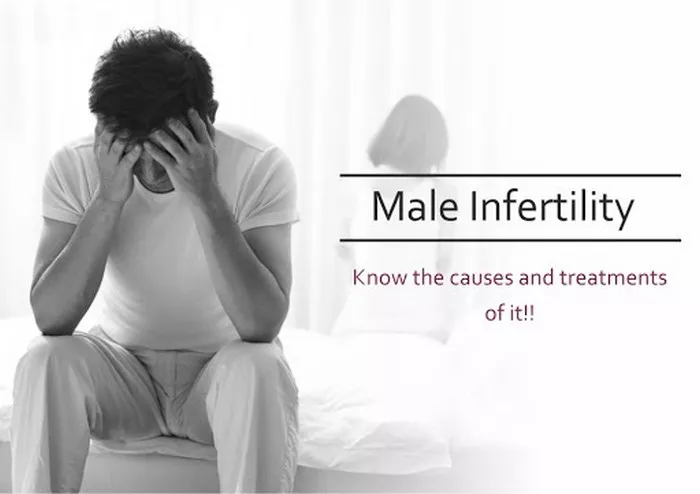For many couples, the journey to parenthood isn’t a straightforward path. Infertility, once considered primarily a female issue, is increasingly affecting men. In fact, studies suggest that male infertility is on the rise, raising concerns and prompting researchers to explore the underlying causes.
But why is male infertility increasing? The answer, like the issue itself, is complex and multifaceted.
Think of male fertility like a delicate ecosystem. Various factors, both internal and external, can disrupt this ecosystem, leading to difficulties conceiving.
Let’s delve into some of the key factors contributing to the rise of male infertility and explore potential solutions for addressing this silent crisis.
Sperm: The Messengers of Life Under Threat
Sperm, the microscopic cells responsible for fertilizing the egg, are the cornerstone of male fertility. For successful conception, sperm need to be abundant, motile (able to swim effectively), and morphologically normal (have the correct shape and structure).
However, research indicates a decline in sperm quality and quantity over the past few decades. This decline is believed to be a major contributor to the rise in male infertility.
Potential Culprits: Factors Contributing to Male Infertility
Several factors are suspected to play a role in the increasing rates of male infertility:
1. Environmental Toxins:
Exposure to environmental toxins, such as pesticides, heavy metals, and industrial chemicals, can disrupt hormone production and sperm development, leading to decreased sperm quality and quantity.
Think of these toxins like weeds in your garden. They can choke out healthy plants (sperm) and hinder their growth.
2. Lifestyle Factors:
Unhealthy lifestyle choices can also impact male fertility. These factors include:
Smoking: Smoking damages sperm DNA and reduces sperm motility.
Excessive alcohol consumption: Alcohol can disrupt hormone production and affect sperm quality.
Drug use: Recreational drugs, such as marijuana and cocaine, can negatively impact sperm production and motility.
Obesity: Obesity is linked to hormonal imbalances and decreased sperm quality.
Stress: Chronic stress can disrupt hormone production and affect sperm production.
3. Age:
While men can father children at a much later age than women, advancing age can still affect sperm quality and quantity.
4. Medical Conditions:
Certain medical conditions, such as varicocele (enlarged veins in the scrotum), undescended testicles, and infections in the reproductive tract, can contribute to male infertility.
5. Genetics:
Some men may be genetically predisposed to infertility.
Breaking the Silence: Addressing the Rise of Male Infertility
The rise of male infertility is a complex issue that requires a multifaceted approach:
1. Raising Awareness:
Many men are unaware of the factors that can affect their fertility. Raising awareness through educational campaigns and open conversations is crucial for encouraging men to take proactive steps to protect their reproductive health.
2. Promoting Healthy Lifestyle Choices:
Adopting a healthy lifestyle can significantly improve sperm health. This includes:
Maintaining a healthy weight: Losing weight if overweight or obese can improve sperm quality.
Eating a balanced diet: A diet rich in fruits, vegetables, and whole grains provides essential nutrients for sperm health.
Exercising regularly: Regular exercise can improve sperm quality and overall health.
Managing stress: Finding healthy ways to manage stress can improve sperm production.
Avoiding smoking, excessive alcohol consumption, and drug use: These habits can significantly impact sperm health.
3. Reducing Exposure to Environmental Toxins:
While it’s impossible to completely avoid environmental toxins, taking steps to minimize exposure can help protect sperm health. This might include:
Choosing organic foods whenever possible.
Filtering your water.
Avoiding contact with pesticides and other chemicals.
4. Seeking Early Diagnosis and Treatment:
If you and your partner are struggling to conceive, don’t hesitate to seek help from a fertility specialist. Early diagnosis and treatment of underlying medical conditions can significantly improve the chances of successful conception.
Remember: You’re Not Alone
Male infertility can be a challenging and emotional experience. It’s important to remember that you’re not alone. Many couples face this challenge, and there are numerous resources and treatment options available.
By seeking help from a fertility specialist, adopting a healthy lifestyle, and minimizing exposure to environmental toxins, you can increase your chances of overcoming male infertility and achieving your dream of fatherhood.
[inline_related_posts title=”You Might Be Interested In” title_align=”left” style=”list” number=”6″ align=”none” ids=”1840,1843″ by=”categories” orderby=”rand” order=”DESC” hide_thumb=”no” thumb_right=”no” views=”no” date=”yes” grid_columns=”2″ post_type=”” tax=””]






















